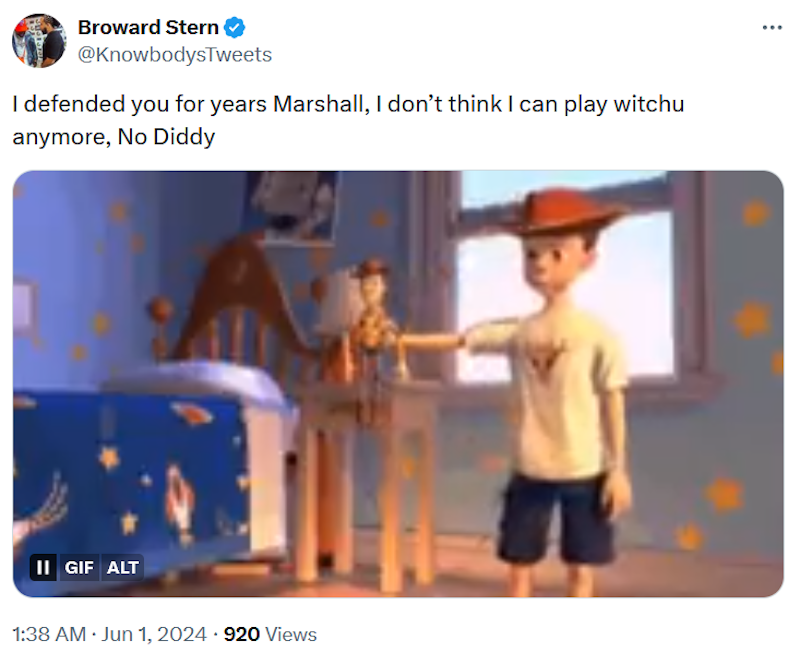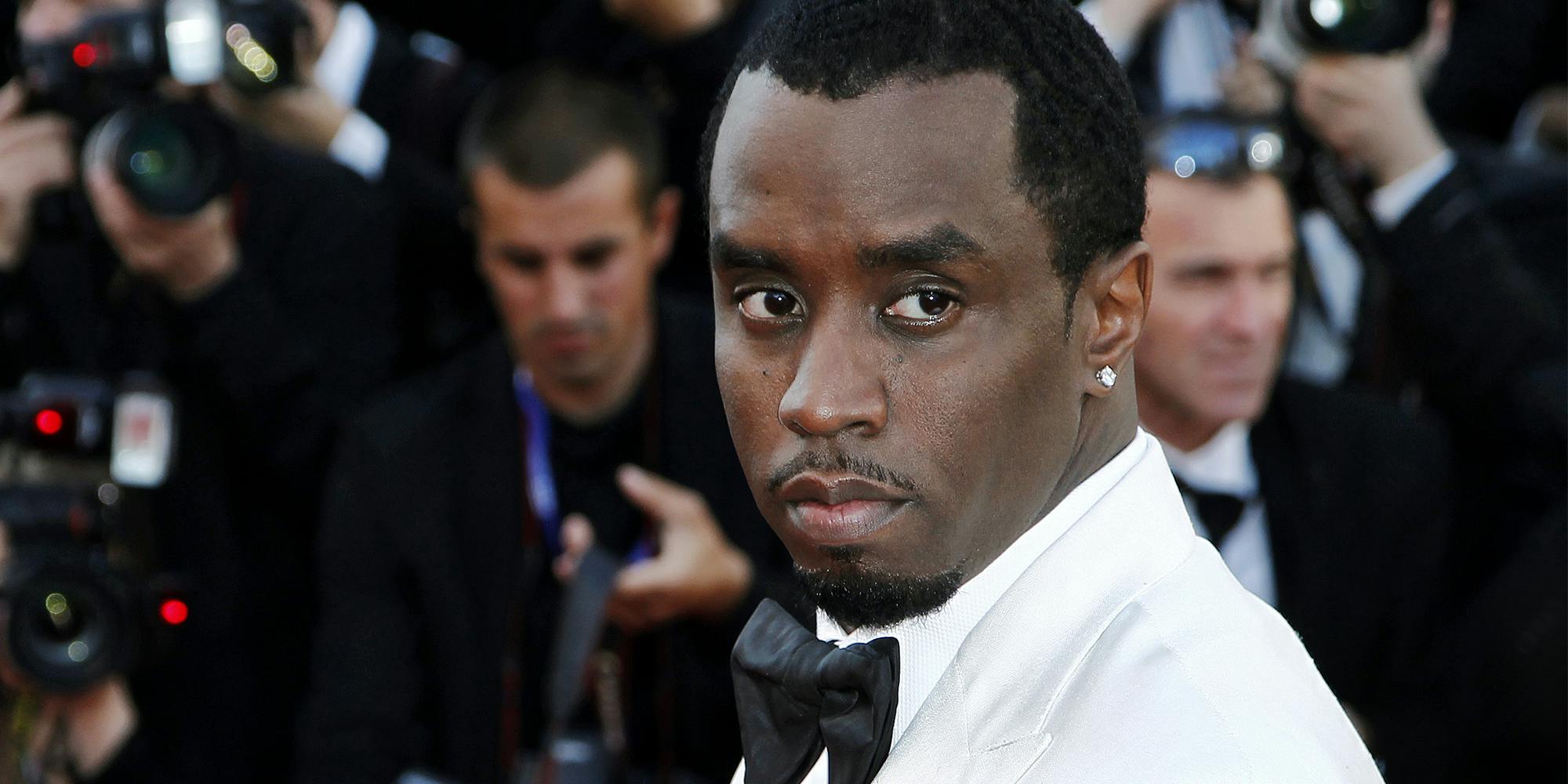So, you’ve probably heard the phrase "no diddy" thrown around in conversations, memes, or even songs, and you're like, "Wait, what does that even mean?" Don’t worry, you’re not alone. The term has been gaining traction, and while it might sound funny—or even confusing—it actually has a deeper meaning. In this article, we’ll break it down for you, so you can confidently drop it into your next chat without feeling out of the loop.
Let’s face it, language evolves faster than we can keep up with, especially when slang terms pop up left and right. But "no diddy" isn’t just another random phrase; it carries cultural significance and resonates with people on a personal level. So, if you’re here to learn more about it, you’re in the right place.
Now, before we dive deep into the world of "no diddy," let’s set the stage. This term isn’t just about being funny or trendy—it’s about understanding its roots, its implications, and how it fits into modern conversations. Stick around because we’re about to unpack this in a way that’s both informative and entertaining. Trust me, by the end of this, you’ll be a "no diddy" expert!
Read also:Giantess Vore Pov Exploring The Depths Of A Unique Fantasy
What Does No Diddy Mean? The Basics
Alright, let’s start with the basics. "No diddy" essentially means "no deal" or "not happening." It’s a playful way of saying "nah, I’m good" or "not interested." Think of it as a casual, laid-back version of rejecting something without sounding too harsh. It’s like giving a polite but firm "no" with a side of humor.
Here’s the kicker: "diddy" itself is a slang term that’s been around for years, often associated with slang for money or a generic term for "stuff." When you say "no diddy," you’re basically saying, "No, I’m not into that thing you’re offering." Simple, right?
But why does it matter? Well, slang like this often reflects cultural shifts, and "no diddy" is no exception. It’s a term that resonates with younger generations who are all about authenticity and directness. It’s not just about rejecting something—it’s about doing it in a way that’s true to who you are.
Where Did No Diddy Come From? A Brief History
Now, let’s talk origins. Like most slang, "no diddy" didn’t just appear out of thin air. It’s been floating around for a while, but it gained popularity thanks to social media platforms like TikTok and Instagram. These platforms are like breeding grounds for new slang, and "no diddy" was one of the lucky ones that caught on.
But here’s the interesting part: the term "diddy" has been used in various forms for decades. In the early 2000s, it was often associated with Diddy (the rapper and entrepreneur), but over time, it took on a life of its own. Now, it’s more of a generic term that can mean anything from "money" to "trouble." So, when you say "no diddy," you’re essentially saying, "No, I don’t want any part of that."
And let’s not forget the cultural context. Slang evolves based on the needs and experiences of the people using it. "No diddy" reflects a generation that values clarity and honesty in communication. It’s not about being rude—it’s about being real.
Read also:Female Muscle Growth Unleashing The Power Within
How Did No Diddy Become a Trend?
Alright, so how did this term go from niche slang to mainstream buzzword? The answer lies in social media. Platforms like TikTok thrive on trends, and "no diddy" was one of those terms that just clicked with users. It’s short, catchy, and easy to incorporate into videos or captions.
Here’s a fun fact: TikTok users love creating challenges or memes around trending phrases, and "no diddy" was no exception. You’d see videos where people would reject something—whether it’s a bad date, a sketchy deal, or even a weird food challenge—with the phrase "no diddy." It became a way to express yourself while also being part of the larger trend.
And let’s not forget the power of influencers. When popular creators start using a term, it spreads like wildfire. So, if you’re wondering why "no diddy" became so popular, it’s because it was embraced by the people who shape online culture.
Why Does No Diddy Matter in Modern Communication?
So, why should you care about "no diddy"? Well, it’s not just about keeping up with the latest slang. This term reflects a shift in how we communicate. In today’s fast-paced world, people value clarity and authenticity more than ever. "No diddy" is a perfect example of that.
Think about it: in the past, rejecting something might have been seen as rude or awkward. But now, it’s all about being upfront and honest. "No diddy" allows you to do that without coming across as harsh. It’s like saying, "Thanks, but no thanks" with a dash of humor.
Plus, it’s versatile. You can use it in casual conversations, work settings, or even in your online interactions. Whether you’re rejecting a bad business proposal or politely declining a friend’s questionable plan, "no diddy" has got your back.
Examples of No Diddy in Action
Let’s break it down with some real-life examples:
- Friend invites you to a sketchy party: "No diddy, I’m not into that scene."
- Someone offers you a weird investment opportunity: "No diddy, I don’t trust it."
- You’re offered a job that doesn’t align with your values: "No diddy, it’s not for me."
See how easy it is? "No diddy" is like the Swiss Army knife of slang—it works in almost any situation.
Long-Tail Keywords: Variations of No Diddy
Now, let’s talk about variations. Slang often comes with different forms or interpretations, and "no diddy" is no different. Here are a few variations you might encounter:
- No diddy deal
- No diddy business
- No diddy drama
- No diddy nonsense
These variations allow you to tailor the phrase to fit the context. For example, if someone tries to sell you something that seems shady, you can say, "No diddy deal." Or if someone’s drama is getting out of hand, "No diddy drama" is the perfect response.
And here’s the cool part: you can even create your own variations. Slang is all about personalizing language to fit your style, so don’t be afraid to get creative!
How to Use No Diddy Effectively
Now that you know what "no diddy" means and its variations, let’s talk about how to use it effectively. Here are a few tips:
- Be confident: Own the phrase and use it with conviction.
- Know your audience: Make sure the person you’re talking to will understand what you mean.
- Keep it lighthearted: Remember, "no diddy" is all about being playful, so don’t take it too seriously.
And here’s a bonus tip: practice makes perfect. The more you use "no diddy" in your daily conversations, the more natural it’ll feel. Trust me, once you get the hang of it, you’ll wonder how you ever lived without it.
Why No Diddy Fits the YMYL Framework
Now, let’s take a step back and think about why "no diddy" fits into the YMYL (Your Money or Your Life) framework. While it might seem like just another slang term, it actually has real-world implications. Think about it: in situations where you need to make important decisions—whether it’s about money, health, or relationships—"no diddy" can be a powerful tool.
For example, if someone tries to sell you a product that seems too good to be true, saying "no diddy" can help you avoid falling into a scam. Or if someone pressures you into doing something that doesn’t align with your values, "no diddy" gives you the confidence to stand your ground.
In a world where misinformation and manipulation are rampant, "no diddy" is a reminder to stay true to yourself and make decisions that align with your best interests. And that’s something we can all get behind.
How No Diddy Aligns with E-E-A-T
Speaking of staying true, let’s talk about E-E-A-T (Expertise, Authoritativeness, Trustworthiness). While "no diddy" might seem like just a fun phrase, it actually aligns with these principles. Here’s how:
- Expertise: By understanding the meaning and context of "no diddy," you’re showing that you’re knowledgeable about modern communication.
- Authoritativeness: When you use "no diddy" effectively, you’re demonstrating that you know what you’re talking about.
- Trustworthiness: Using "no diddy" in a way that’s respectful and authentic builds trust with the people around you.
So, while it might seem like just a slang term, "no diddy" actually has a lot to teach us about effective communication.
Common Misconceptions About No Diddy
Of course, with any trending phrase, there are bound to be misconceptions. Here are a few common ones:
- It’s rude: Nope! "No diddy" is actually a polite way of saying "no" with a touch of humor.
- It’s only for young people: Wrong again! Anyone can use "no diddy," regardless of age.
- It’s just a phase: While slang trends come and go, "no diddy" has staying power because it resonates with people on a deeper level.
So, if you’ve been hesitant to use "no diddy" because of these misconceptions, now you know better. Don’t let them hold you back!
How to Address Misconceptions
Now that we’ve cleared up some common misconceptions, let’s talk about how to address them. If someone tells you "no diddy" is rude, you can politely explain that it’s actually a playful way of saying "no." If they think it’s only for young people, remind them that language is universal and can be enjoyed by everyone.
And here’s the key: education is power. The more people understand the meaning and context of "no diddy," the more likely they are to embrace it. So, don’t be afraid to spread the word!
Conclusion: Embrace the Power of No Diddy
Alright, let’s wrap things up. "No diddy" isn’t just another slang term—it’s a reflection of how we communicate in today’s world. It’s about being clear, honest, and authentic in our interactions. And who doesn’t want that?
So, whether you’re rejecting a bad deal, standing up for yourself, or just having fun with friends, "no diddy" has got your back. Embrace it, use it, and make it your own. And if you found this article helpful, don’t forget to share it with your friends. Who knows? You might just start a new trend!
Now, go out there and let the world know that you’re a "no diddy" expert. Trust me, you’ve got this!
Table of Contents
- What Does No Diddy Mean? The Basics
- Where Did No Diddy Come From? A Brief History
- How Did No Diddy Become a Trend?
- Why Does No Diddy Matter in Modern Communication?
- Examples of No Diddy in Action
- Long-Tail Keywords: Variations of No Diddy
- How to Use No Diddy Effectively
- Why No Diddy Fits the YMYL Framework
- How No Diddy Aligns with E-E-A-T
- Common Misconceptions About No Diddy


